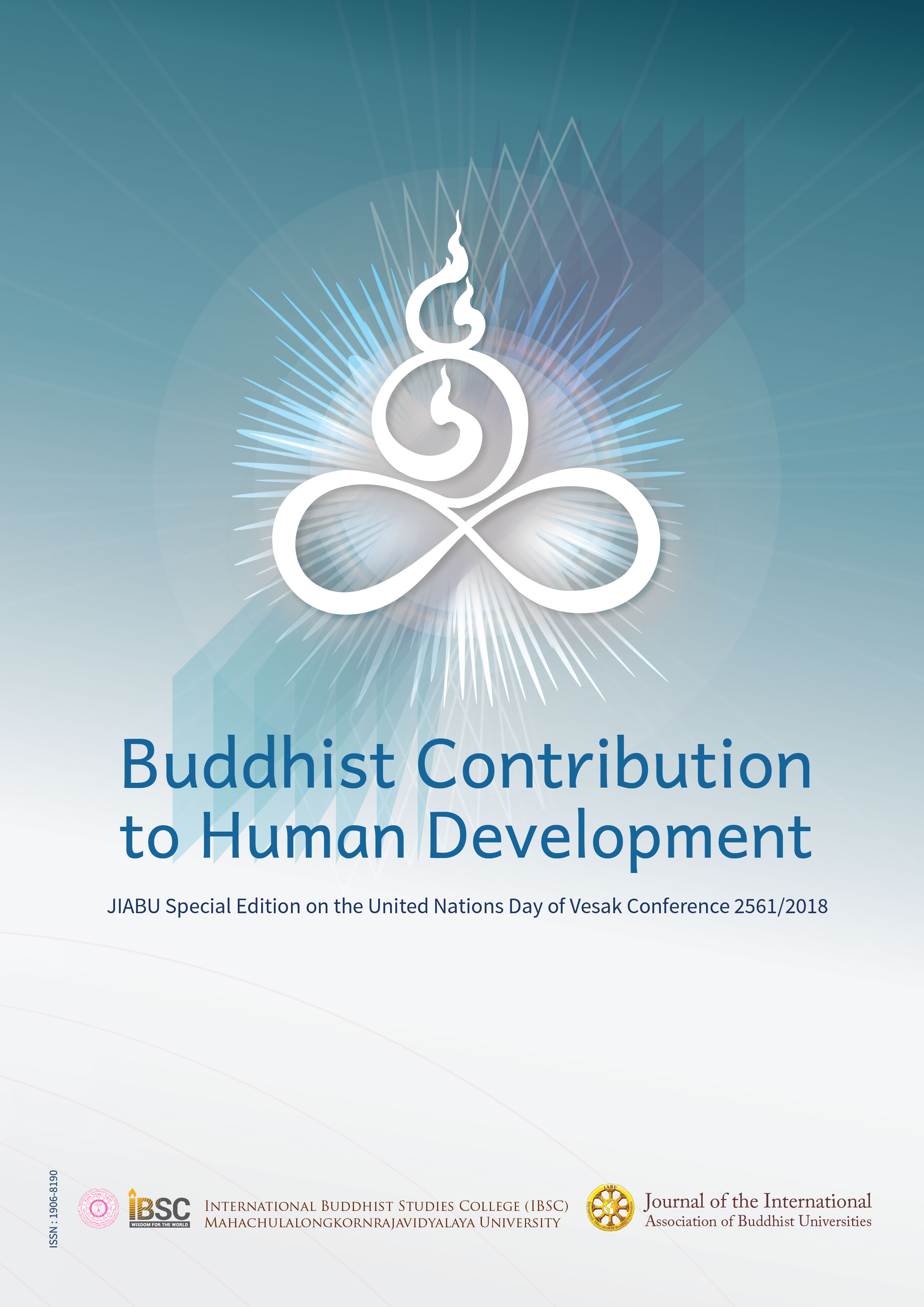The Concept of Kāmarāga in Theravāda Buddhism
Main Article Content
Abstract
In general, the Pali Buddhist term ‘Kāmarāga’ is translated into English as ‘sensuality’.
It is a psychological phenomenon of the human condition, according to Buddhism, that
also encompasses the natural tendencies of all human beings; thus, it cannot be a problem.
Yet, Kāmarāga is considered a problem when it is clung to (upādāna) for the purpose of
securing permanent happiness in life. However, sensuality should be treated as a temporary
happiness. According to the view of Buddhism, sensuality in modern societies has been
understood in the wrong way.
The concept of Kāmarāga covered in the scope of this article is specifically in
reference to ‘sexuality’, because it is the primary aim of many humans to obtain this
experience. It’s the natural tendency of any human being that sexual gratification grows
along with maturity. Generally, the notion of sexual gratification is higher among humans.
Many individuals think sexual experience is emblematic of supreme happiness. Buddhism
sees sexual gratification and sexual experience as not being the supreme happiness of human
existence. This article explores Kāmarāga (sexual gratification) in the Buddhist scriptures.
Article Details
Views and opinions expressed in the articles published by The Journal of the International Association of Buddhist Universities (JIABU), are of responsibility by such authors but not the editors and do not necessarily reflect those of the editors.
References
Boston: Wisdom Publications, 2000.
Cowell, E. B. The Jātaka or Stories of the Buddha’s Former Births, translated from the Pāli
by various hands, Vol. I. Cambridge: At the University Press, 1895.
. The Jātaka or Stories of the Buddha’s Former Births, translated from the Pāli by
various hands. Vol. VI. Cambridge: At the University Press, 1907.
Cowell and Nells. (Trans.). Jātaka Stories. Vol. I-VI. London: PTS, 1982.
Lord, Chalmers. (Trans.) Dialogues of the Buddha (Majjhima-Nikāya). Vol. I-III. London:
PTS, 1826-1827.
Nyānamoli, Bhikkhu and Bodhi, Bhikkhu. tr. The Middle Length Discourses of the Buddha
(Majjhima-Nikāya). Kandy: Buddhist Publication Society. 1995.
. The Middle Length Discourses of the Buddha (Majjhima Nikāya). Boston: Wisdom
Publications, 1995.
. The Middle Length Discourses of the Buddha: a new translation of the Majjhima
Nikāya. Kandy: Buddhist Publication Society, 1995.
Rhys Davids, T. W. and Mrs. Rhys Davids. (Trans.) Dialogues of the Buddha, (DīghaNikāya). Vols. I-III. London: PTS, 1899-1921.
Walshe, Maurice. tr. The Long Discourses of the Buddha (Dīgha-Nikāya). Kandy: BPS.
1996.
Woodward, F. L. and Hare, E. M. tr. The Book of the Gradual Sayings (Aṅguttara Nikāya).
Vol. IV. London: PTS, 1995.
Woodward, F. L. tr. The book of gradual Sayings (Anguttara-Nikāya). Vols. I-II. Oxford:
PTS, 1995.
. The Book of the Gradual Sayings (Aṅguttara-Nikāya), Vol. V. Oxford: The Pali
Text Society, 1994.
. The Book of the Kindred Sayings (Saṁyutta-Nikāya). Vol. V. Oxford: Pali Text
Society, 1994.
Cowell, E. B. The Jātaka or Stories of the Buddha’s Former Births, translated from the Pāli
by various hands, Vol. V. Cambridge: At the University Press, 1905.
Peter Harvey. An Introduction to Buddhist Ethics, Cambridge: Cambridge University Press,
2000.


